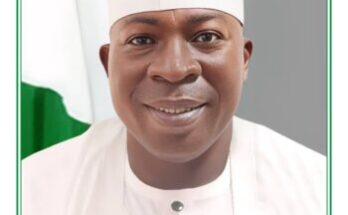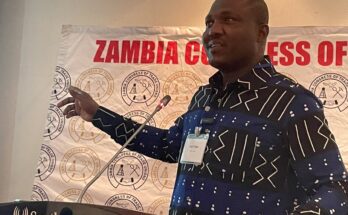Suleiman Isah is the organiser and curator a Technology, Entertainment, Design (TED) Talk scheduled to hold in Minna next month. In this interview, he tells AWAAL GATA more about the event and what the people should expect
How did the idea of convening a TED Talk in Minna come about?
The whole idea started when a group of people were trying to examine how to help the state move forward. There were many suggestions, but the most convincing was to provide a platform where intellectuals of like minds would assemble and network. From the networking other things can follow. The TEDx platform was the best for this being an international platform with a wide following, it can attract Nigerlites to gather and hopefully something great will come out of the event for the state. Also, the large publicity can expose the potentials of the state to investors or development partners who would be able to come into the state and provide some essential services and infrastructure like health care, improved technologies, capacity building and a host of others. As part of the requirements for getting a licence from TED we had to submit a theme, so we brainstormed on different themes and finally arrive at Changing Mindsets because we feel a positive change in mindset will change how things are currently being done and would lead to progress for the state.
Is this the first time such will be convened in Minna? Why is it coming this late?
Yes and No. Yes, being that TEDxMinna will be holding for the first time, but a TEDx was once held. The Federal University of Technology had a TEDx Event in the past called TEDxFUTMINNA, although it was a university licence targeting the university community while TEDxMinna is a standard licence targeting Minna and the state as a community.
It is better late than never. A lot of people have met me saying they had the idea of hosting but the never made much effort so I guess no one was willing to take the bull by the horn till now.
Who are the speakers and what criteria did you use in selecting them?
For now we have seven speakers but we are looking to add minimum of three more before the event. The speakers were selected based on their current expertise, field of practice, verifiable experience, political neutrality and attachment to Niger state and its current challenges.
Among the speakers is Seun Shokunbi. She is a Brooklyn-raised Nigerian seeking to connect her Diaspora community with their native roots to spark a generational revolution in Africa. Her work with Karfi, a consulting and leadership development firm, and its charitable arm the Karfi Foundation, tackles the issue of untapped talent among youth and the most marginalised communities in Africa. She is also a published writer and public speaker an educator, data manager and consultant.
Another speaker is Habila Malgwi. He is a seasoned business development expert and an investment banker who has over the years built his career with top multinational organisations. He is a philanthropist with a strong passion for children’s welfare and a desire that Africans are equally treated with respect just like every other individual around the world. He is currently the regional director-Africa at Arton Capital and a member of the Africa Advisory board and Save The Children UK.
Another one is Mrs. Aminat Jummai Gimba. She is the co-founder of Farid Foundation and The Farid Centre, where she oversees the early intervention and rehabilitation of children with special needs and offers counselling to their parents and caregivers. She is a passionate advocate for the rights of people with disabilities and has been at the forefront of the development of novel programmes and strategies that have enhanced the quality of life for people with special needs. Under her leadership, The Farid Centre has taken on the difficult task of dismantling the widespread and entrenched stereotypes and prejudices against people with special needs in society, with laudable achievements.
Hamza Yunusa is another speaker. He is the co-founder Nazarion Technologies and is currently the Founder and CEO at Hydronamics LTD – an Abuja based company which uses cutting-edge technologies like IoT, Artificial intelligence and more recently Robotics, to develop solutions in the water sector. Hamza is extremely passionate about water; he believes in its mysteriousness and is inspired by its fluidity.
Also slated to at event is Fatimah Dattijo Muhammad. She is a senior associate with Miyetti Law Firm in Abuja. She is a versatile young professional who has obtained significant experience and practical knowledge in Litigation, Alternative dispute resolution, debt recovery and commercial transactions.
She is an associate member with the Chartered Institute of Arbitrators (UK), an Associate Member of the Institute of Chartered Mediators and Conciliators Nigeria, a member of the Nigerian Bar Association and the International Bar Association (IBA).
Aminu Ndakogi Kanko has also being scheduled to speak. He is a rural rice farmer from Kanko town in Wushishi local government area of Niger state. He has over 20 years’ experience in rice farming, fishing, trading and community mobilisation.He is a full-time rice producer, paddy aggregator, youth leader, a champion farmer and a motivator. Awarded VCDP’s Best Rice Farmer in Niger State Also awarded as VCDP’s best Youth Champion Farmer.
Finally, for now, is Mustapha Ndajiwo. He is the executive director of the African Centre for Tax and Governance. He is a tax policy expert of international repute with experience in tax audit, taxpayer education, tax policy research and development, government business tax and filing debt and arrears.
Since leaving the government, Mustapha has worked as a tax policy consultant, consulting for reputable organisations such as the Tax Justice Network based in London, the International Centre for Tax and Development (ICTD) UK, the Friedrich Ebert Stiftung, Public Service International (PSI) based in Paris, and the German Development Cooperation (GIZ) among others.
Mustapha has experience in government, civil society and academia.
What areas would their talks spotlight on?
Aminu will be discussing youth involvement in the rice value chain, Mustapha will be discussing Taxation, Seun will be talking about sustainable living under $1 per day, and Mrs. Gimba will be on special people – children requiring special care. Habila will be discussing Global Citizenship, Hamza will be talking on water and innovation, while Fatima will be discussing on pushing limits and breaking boundaries.
Hopefully, the three additional speakers will be in the areas of media and entertainment, adventure and tourism, Public Health and Security. As soon as we get them we will announce them.
What impact do you think it could add to the city and its people?
The impact we expect from this event is a stronger bond between citizens both home and in the Diaspora. We also want to see how lives will be impacted without waiting for government for example, after the event nothing stops a member of the audience replicating the centre being run by Mrs. Gimba to cater for children with special needs in other locations outside Minna or use the water technology developed by Hamza to provide clean safe water for people. As much as TEDxMinna is a one-day event we want it to ripple into so many other positive social enterprises that will improve lives in the state.
Tell us about sponsorship; are you being sponsored? What are your challenges?
Currently we are running all our activities based on donations we got from some team members and some well-meaning Nigerlites that understand the impact and benefits to the state. We have a budget of over 18 million because we have to source a lot of services and equipment like 4, 000 cameras, digitally re-enforced sound systems, stage lights, etc, from Abuja and Lagos. But we are willing to partner will organisations to sponsor either financially or by providing us services in return we offer them publicity on the TEDx global platform, especially the YouTube channel having over 22.7 million subscribers.
Our greatest challenges currently are sourcing for funds and mobilising Nigerlites outside Niger, especially the above 40 age bracket. The event is targeting all ages, tribe, gender, and religion it is not an event centred on a particular sect, but the community as a whole.



